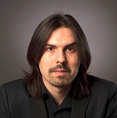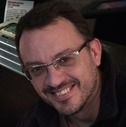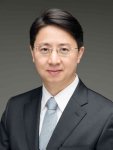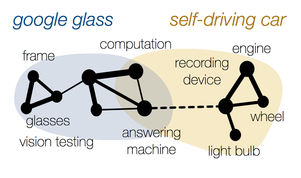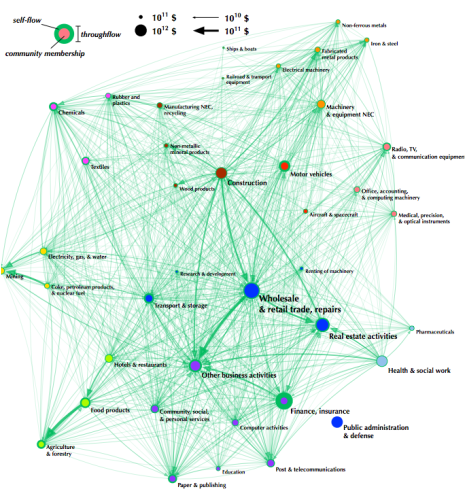Networks and Technology Evolution
NetSci 2016 Satellite,
Monday, 30 May 2016, Seoul, Korea
|
Time: 2:30 - 6:30pm on Monday, 30 May 2016
Place: Dongkang C at The-K Hotel, Seoul, Korea Call for Contributed Talks: submissions and acceptance on a rolling base We have 2-3 slots for contributed talks and a few more places for ignite talks. We cordially invite you to submit one-page abstract (one figure) clearly stating your preference of format by emailing the organizers (here). Registration: Registration for the session is free of charge, though participants will need to register for the main conference. Reduced fees are available for early registrations until April 29th. Organizers:
Invited Speakers:
|
Time table:
2.30PM - 2.40PM: Overview: opening the blackbox
2.40PM - 3.20PM: Stefan Thurner (combinatorial model for booms and busts in economic development)
3.20PM - 3.35PM: Inho hong (creative destruction in urban economy: industrial trajectory in time and space)
3.35PM - 3.50PM: Hyejin Youn (combinatorial process in the invention activities)
3.50PM - 4.10PM: break (afterward discussion)
4.10PM - 4.45PM: Pan-Jun Kim (scientific evolution in digitized books, modeling, and future perspective)
4.45PM - 5.20PM: Sergi Valverde (major transitions in information technology)
5.20PM - 5.35PM: Kibae Kim (the structure of knowledge evolution: Convergence, divergence, and innovation shift)
5.35PM - 5.55PM: James McNerney (networks of production, price evolution, and economic growth)
5.55PM - 6.00PM: break
6.00PM - 6.40PM: Panel discussion (Thurner, Valverde, Kim)
6.40PM: Closing
Venues: Dongkang C, The-K Hotel, Seoul, Korea
Theme:
The structure and evolution of technology is an expanding field with many application and implications for human welfare. Technological change is a naturally occurring socio-physical phenomenon, though it has been relatively poorly studied. New mathematical and computational methods and data, however, are opening up avenues to quantify technology evolution in a number of new ways. A key development has been the application of networks, which have repeatedly appeared as natural representations of technology interactions at all levels, such as between components of interdependent devices, production processes, collaborative inventors, competing firms, and trading countries . Building on this effort requires methodology development and frameworks to better connect theoretical models with data. Among these include characterizing the structure and temporal-evolution of innovation networks, connecting innovations to outcomes within other kinds of technological networks, and developing dynamical models of technology performance improvement. Key network data sets that have been used so far to analyze technology evolution are patents data, input-output tables, international trade data, product catalogues and Google N-gram. Improving access to and quality of data has led to an increasingly fruitful interplay between theoretical modeling and data analysis in recent years, and will be an important theme of the satellite.
Topics:
General questions of interest include:
- Why do some countries grow so much more rapidly than others?
- What activities foster innovation?
- How do we pick technologies to solve pressing environmental challenges?
- What are the impacts of technological change on people?
- How to measure rate at which technology advances in society
- What are the data out there (bibliographic data and economic data)?
- How to capture innovation (where it comes from and how and why it takes place)
Other topics that fit with the goals of the satellite are also welcome. We aim to steer the session in these directions while fostering freedom for the satellite to tread into novel territory.
The structure and evolution of technology is an expanding field with many application and implications for human welfare. Technological change is a naturally occurring socio-physical phenomenon, though it has been relatively poorly studied. New mathematical and computational methods and data, however, are opening up avenues to quantify technology evolution in a number of new ways. A key development has been the application of networks, which have repeatedly appeared as natural representations of technology interactions at all levels, such as between components of interdependent devices, production processes, collaborative inventors, competing firms, and trading countries . Building on this effort requires methodology development and frameworks to better connect theoretical models with data. Among these include characterizing the structure and temporal-evolution of innovation networks, connecting innovations to outcomes within other kinds of technological networks, and developing dynamical models of technology performance improvement. Key network data sets that have been used so far to analyze technology evolution are patents data, input-output tables, international trade data, product catalogues and Google N-gram. Improving access to and quality of data has led to an increasingly fruitful interplay between theoretical modeling and data analysis in recent years, and will be an important theme of the satellite.
Topics:
General questions of interest include:
- Why do some countries grow so much more rapidly than others?
- What activities foster innovation?
- How do we pick technologies to solve pressing environmental challenges?
- What are the impacts of technological change on people?
- How to measure rate at which technology advances in society
- What are the data out there (bibliographic data and economic data)?
- How to capture innovation (where it comes from and how and why it takes place)
Other topics that fit with the goals of the satellite are also welcome. We aim to steer the session in these directions while fostering freedom for the satellite to tread into novel territory.



